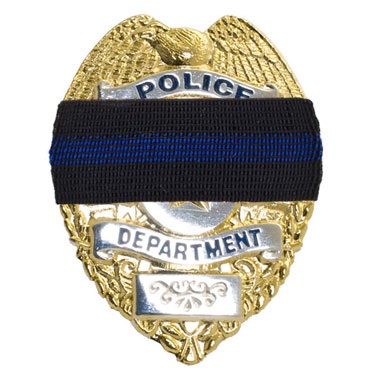Law enforcement officers are facing a nationwide epidemic within their own ranks. According to statistics released by Blue H.E.L.P., a nonprofit organization that tracks law enforcement suicides, 114 officers in the U.S. Have taken their lives this year as of August 1st. According to those numbers, that number has risen by nearly 25% since last year. President Donald Trump recently signed a bill authorizing up to $7.5 million in grant funding a year for police suicide prevention efforts, mental health screenings and training to identify officers at risk nationwide.
Police Chief Adam Mefford says that Jacksonville Police have a number of resources available to them within his department to combat various mental health issues that arise from the stress of the job: “We provide an employee assistance program, which is an anonymous program. If the officer needs to seek counseling or resources for their mental well being or for other issues that may be going in their life, they can use the program free of charge. It’s 100% anonymous. They can go to those counseling services or those agencies and seek whatever help they may need. We have a Chaplain program here at the department. It’s not forced upon anyone, but if somebody was looking for spiritual advisement or outreach from the chaplain program, that is provided 24 hours a day.”
Mefford says the department also has been receiving some new training to assist with mental health issues as well as through proper staffing. “We provide our officers trauma-informed training each year. It’s something new that we started last year and hope to continue doing that. We encourage officers to seek out other types of training and other types of seminars to go and talk in discussions about mental health, how to de-escalate from the job, or learning how to bring stress levels down when they are off duty. We encourage officers to take time off from work. They have a lot of benefit time. That’s one reason why we struggle with our staffing levels to give those officers those crucial days off. Being overworked is one of the biggest stressors of a police department.”
Mefford stresses that career police officers need to have a life away from the job to maintain their health. “It’s important when you make a career of law enforcement that you have activities away from the job whatever it may be. It helps take their focus away from the job to those other things like hobbies, families and children, or any other good outlet. Unfortunately, this career does carry a huge burden. You can’t un-see what you have seen. You can’t un-hear what you have heard. If you don’t have your proper outlets, it can really take a toll on you over time.”
Mefford said that the current climate of unprecedented scrutiny by high profile cases in the news, social media, body cameras, and changes in law enforcement may be playing a part as one of the symptoms into the increased mental stress on law enforcement officers. However, Mefford said that Jacksonville’s network of support for law enforcement makes a difference for on-duty officers from day to day: “I really do feel like our community supports law enforcement. We do have a lot of great support. I think that it’s important for the officers here to know that the community is behind them. We’ve had several events like our community outreach programs, our Boots On the Ground program, and just the different things that we’ve tried – and the amount of community support that we’ve seen for those programs really shows. I appreciate it and I know the officers in the department do, as well.”
Mefford said that despite the national stigma about police officers, he says the number one thing he hears from all applicants to the force is that people want to help people. He said that sometimes the best way for an officer to help the community is to sometimes help themselves by talking about their mental health issues and getting the help that they need.




